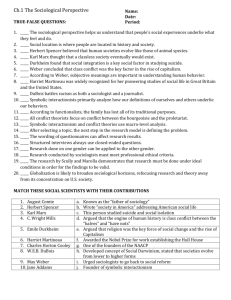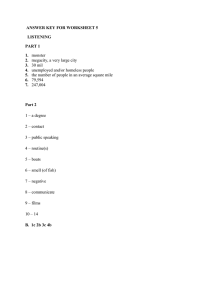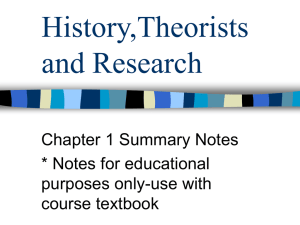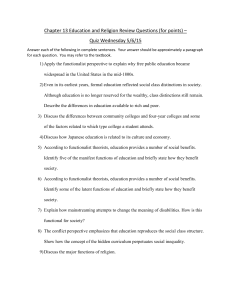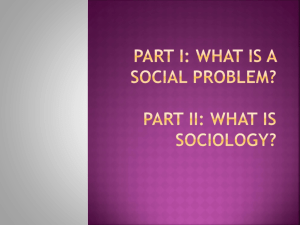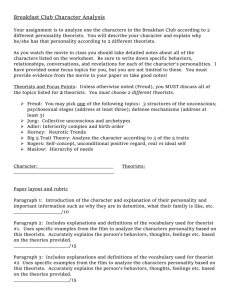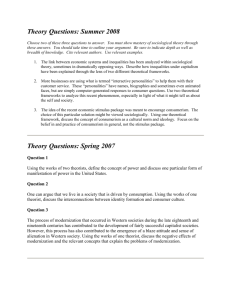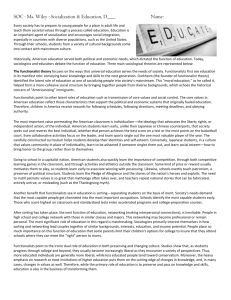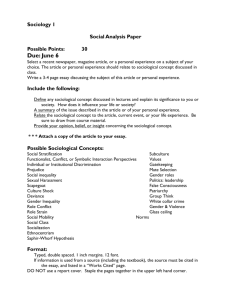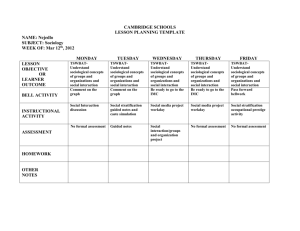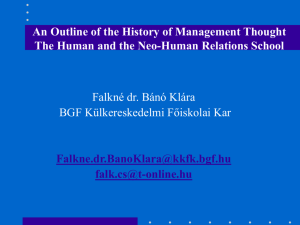3 Sociological Views on Education:
advertisement
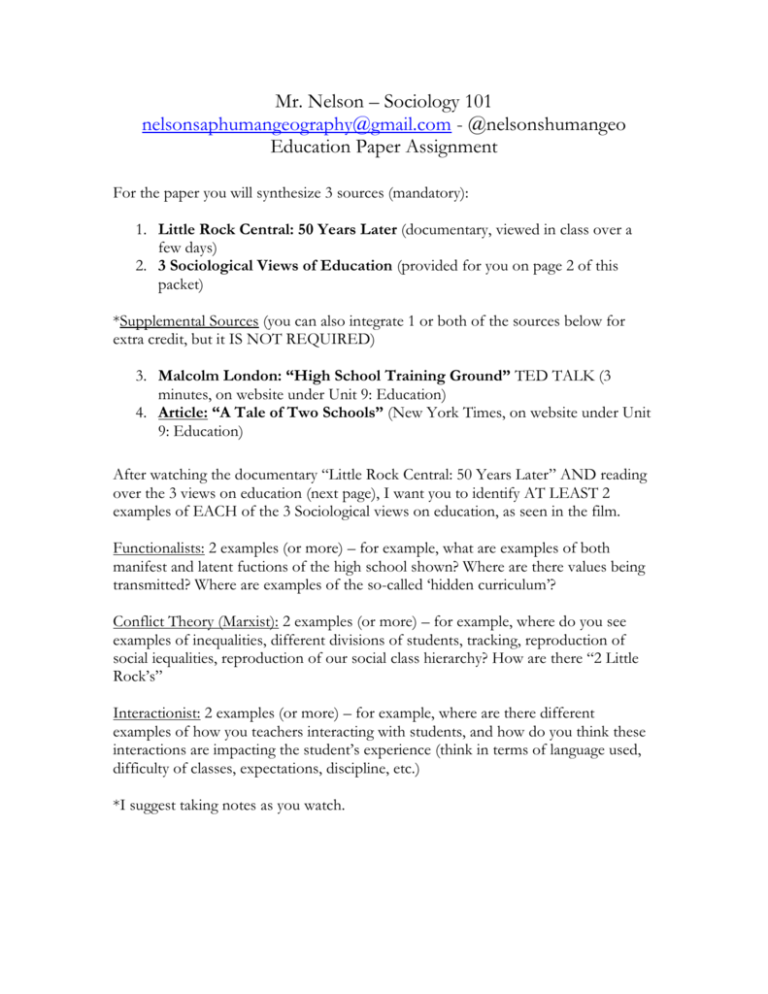
Mr. Nelson – Sociology 101 nelsonsaphumangeography@gmail.com - @nelsonshumangeo Education Paper Assignment For the paper you will synthesize 3 sources (mandatory): 1. Little Rock Central: 50 Years Later (documentary, viewed in class over a few days) 2. 3 Sociological Views of Education (provided for you on page 2 of this packet) *Supplemental Sources (you can also integrate 1 or both of the sources below for extra credit, but it IS NOT REQUIRED) 3. Malcolm London: “High School Training Ground” TED TALK (3 minutes, on website under Unit 9: Education) 4. Article: “A Tale of Two Schools” (New York Times, on website under Unit 9: Education) After watching the documentary “Little Rock Central: 50 Years Later” AND reading over the 3 views on education (next page), I want you to identify AT LEAST 2 examples of EACH of the 3 Sociological views on education, as seen in the film. Functionalists: 2 examples (or more) – for example, what are examples of both manifest and latent fuctions of the high school shown? Where are there values being transmitted? Where are examples of the so-called ‘hidden curriculum’? Conflict Theory (Marxist): 2 examples (or more) – for example, where do you see examples of inequalities, different divisions of students, tracking, reproduction of social iequalities, reproduction of our social class hierarchy? How are there “2 Little Rock’s” Interactionist: 2 examples (or more) – for example, where are there different examples of how you teachers interacting with students, and how do you think these interactions are impacting the student’s experience (think in terms of language used, difficulty of classes, expectations, discipline, etc.) *I suggest taking notes as you watch. 3 Sociological Views on Education: 1. Functionalist Theory – focuses on the purpose of having an educational system. These purposes include transmission of information (subjects like math, science, social studies, etc) as well as things like the transmission of cultural values to students (such as achievement, hard work, patriotism, individuality, competition, and others) Therefore, children in America receive rewards for following schedules, following directions, meeting deadlines, and obeying authority. In addition, functionalists believe that schools (particularly in the late 20th and early 21st centuries) are performing functions historically left for the family. 2. Conflict Theorists – schools reproduce the social inequalities of a society and preserving the power of those who dominate society. Conflict theorists argue that schools track (or sort) students along distinct class and ethnic lines and that schools train those in the working classes to accept their position as a lower-class member of society. Conflict theorists call this role of education the “hidden curriculum.” First, property taxes fund most schools; therefore, schools in affluent districts have more money. Such areas are predominantly white. They can afford to pay higher salaries, attract better teachers, and purchase newer texts and more technology. Students who attend these schools gain substantial advantages in getting into the best colleges and being tracked into higher-paying professions. Students in less affluent neighborhoods that do not enjoy these advantages are less likely to go to college and are more likely to be tracked into vocational or technical training. They also represent far higher numbers of minority students. Conflict theorists contend that not only do the economics favor the white affluent, but so does school testing—particularly IQ testing, which schools can use to sort students. They argue that the tests, which claim to test intelligence, actually test cultural knowledge and therefore exhibit a cultural bias. 3. (Symbolic) Interactionists –limit their analysis of education to what they directly observe happening in the classroom. They focus on how teacher expectations influence student performance, perceptions, and attitudes. Some famous studies of this include the Rosenthal/Jacobson Experiment and the Ray Rist experiments (check the poweroint under Unit 9: Education for details on these experiments). Both experiments deal with the concept of self-fulfilling prophecies.
